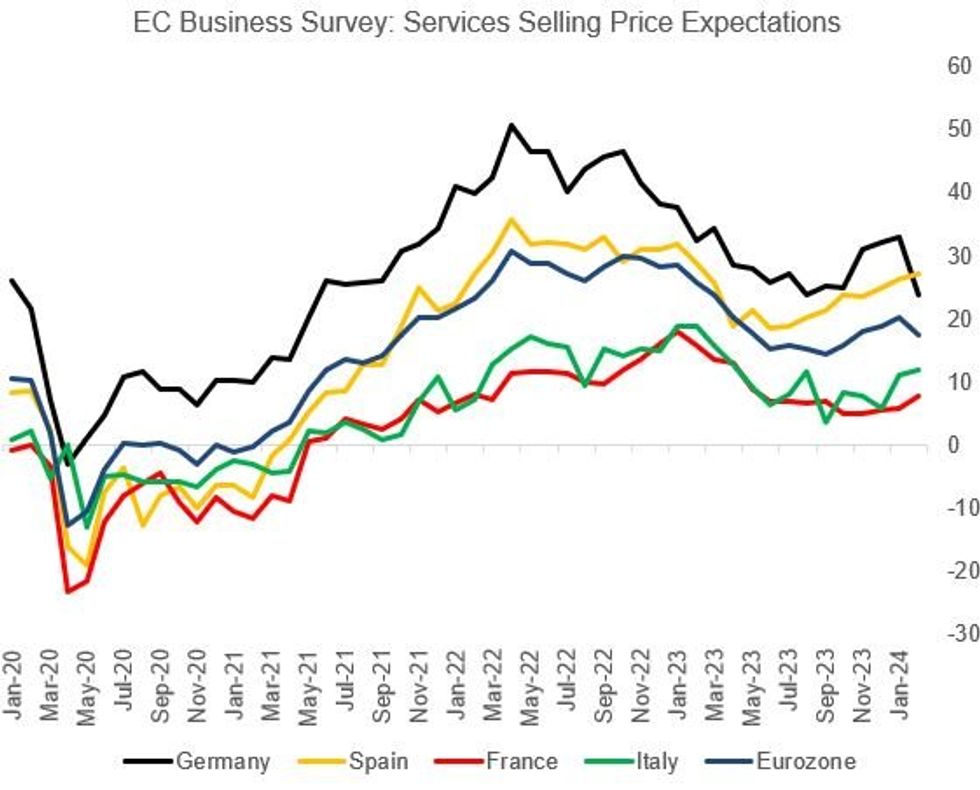-
Policy
Policy
Exclusive interviews with leading policymakers that convey the true policy message that impacts markets.
LATEST FROM POLICY: -
EM Policy
EM Policy
Exclusive interviews with leading policymakers that convey the true policy message that impacts markets.
LATEST FROM EM POLICY: -
G10 Markets
G10 Markets
Real-time insight on key fixed income and fx markets.
Launch MNI PodcastsFixed IncomeFI Markets AnalysisCentral Bank PreviewsFI PiFixed Income Technical AnalysisUS$ Credit Supply PipelineGilt Week AheadGlobal IssuanceEurozoneUKUSDeep DiveGlobal Issuance CalendarsEZ/UK Bond Auction CalendarEZ/UK T-bill Auction CalendarUS Treasury Auction CalendarPolitical RiskMNI Political Risk AnalysisMNI Political Risk - US Daily BriefMNI Political Risk - The week AheadElection Previews -
Emerging Markets
Emerging Markets
Real-time insight of emerging markets in CEMEA, Asia and LatAm region
-
Commodities
-
Credit
Credit
Real time insight of credit markets
-
Data
-
Global Macro
Global Macro
Actionable insight on monetary policy, balance sheet and inflation with focus on global issuance. Analysis on key political risk impacting the global markets.
Global MacroDM Central Bank PreviewsDM Central Bank ReviewsEM Central Bank PreviewsEM Central Bank ReviewsBalance Sheet AnalysisData AnalysisEurozone DataUK DataUS DataAPAC DataInflation InsightEmployment InsightGlobal IssuanceEurozoneUKUSDeep DiveGlobal Issuance Calendars EZ/UK Bond Auction Calendar EZ/UK T-bill Auction Calendar US Treasury Auction Calendar Global Macro Weekly -
About Us
To read the full story
Sign up now for free trial access to this content.
Please enter your details below.
Why MNI
MNI is the leading provider
of intelligence and analysis on the Global Fixed Income, Foreign Exchange and Energy markets. We use an innovative combination of real-time analysis, deep fundamental research and journalism to provide unique and actionable insights for traders and investors. Our "All signal, no noise" approach drives an intelligence service that is succinct and timely, which is highly regarded by our time constrained client base.Our Head Office is in London with offices in Chicago, Washington and Beijing, as well as an on the ground presence in other major financial centres across the world.
Real-time Actionable Insight
Get the latest on Central Bank Policy and FX & FI Markets to help inform both your strategic and tactical decision-making.
Free AccessMNI ASIA OPEN: Weak 30Y Reopen, ECB Forward Guidance Weighing
MNI ASIA MARKETS ANALYSIS: Tsys Reverse Early Data Driven Gain
MNI US Inflation Insight: Softer Housing Helps Ensure Dec Cut
Economic Confidence Wanes, With Disinflationary Hints
Eurozone economic confidence pulled back in February according to the European Commission's monthly Business and Consumer Survey results, with the overall index falling to 95.4 (vs 96.6 expected, 96.1 prior rev.), in what on balance was a relatively soft and disinflationary report versus the previous couple of months.
- Weakness was broad-based. Services sector confidence dropped to 6.0 (9.0 expected, 8.4 prior rev.), with Industrial confidence unexpectedly dipping to -9.5 (-9.2 expected, -9.3 prior rev.). Retail trade sentiment hit a 3-month low and construction a 5-month low.
- The flash Consumer Confidence reading was confirmed at -15.5.
- The readings suggest a slightly more cautionary outlook for Eurozone business confidence than may have been suggested by some national level and PMI readings. We note that the pullback in Services confidence versus the Dec/Jan prints was broad-based, and spread fairly evenly among the big 4 economies.
- One potential takeaway from a monetary policy perspective is the dip in services selling price expectations, which at 17.5 marked a 4-month low. This was driven by a sharp drop in German services firms' selling price expectations to 23.8 vs 33.0 prior: a 33-month low, and a sharp reversal from the 10-month high hit in January. Readings out of Spain/France/Italy all ticked higher though, suggesting that the German figure should be eyed somewhat cautiously.
- Industrial sector price expectations meanwhile haven't changed substantially since June, settling at very low levels amid weak activity, largely confirming broader data.
- Any confirmation in service price disinflation (in addition to expectations that industrial goods prices will remain subdued) in hard data would go a long way in shoring up ECB confidence in cutting, but further evidence beyond surveys will be needed.
 Source: European Commission, MNI
Source: European Commission, MNI
To read the full story
Sign up now for free trial access to this content.
Please enter your details below.
Why MNI
MNI is the leading provider
of intelligence and analysis on the Global Fixed Income, Foreign Exchange and Energy markets. We use an innovative combination of real-time analysis, deep fundamental research and journalism to provide unique and actionable insights for traders and investors. Our "All signal, no noise" approach drives an intelligence service that is succinct and timely, which is highly regarded by our time constrained client base.Our Head Office is in London with offices in Chicago, Washington and Beijing, as well as an on the ground presence in other major financial centres across the world.
